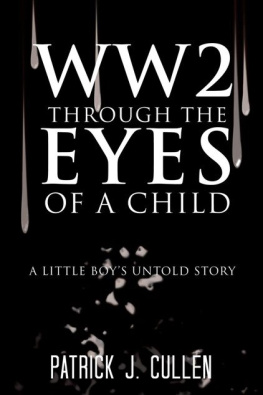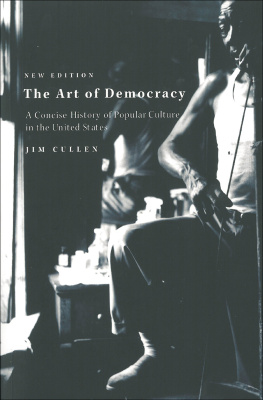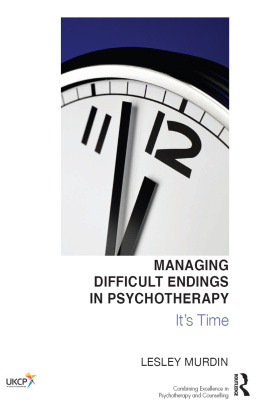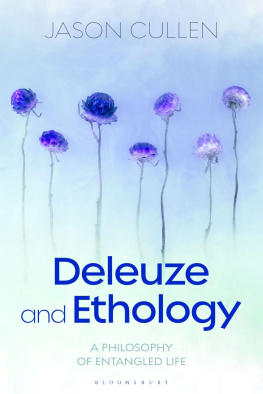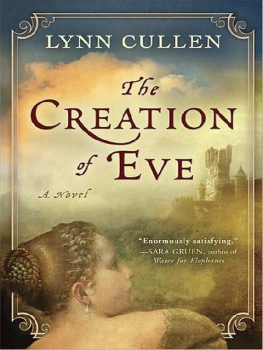Prologue
I n some ways, a hospice employees work is never done.
It is not the kind of emotional grind one can easily leave at the office. For the first eight months that I worked as a licensed clinical social worker at a nonprofit hospice agency, I would come home in tears. Every night, I could not help but share my stressful, sad, often-traumatic day with Ed, my patient and understanding husband. It was truly an emotional whirlwind that only lasted three years, yet it changed me forever.
Hospice social work can be made all the worseas it was in my casewhen there are no systems in place for social workers to receive the support, guidance, or assistance they may need to do their job.
Helping a person and their family find their way through the morass of dying is a gut-wrenching journey and a unique experience each time. Relationships and emotions develop. When a client passes on, you dont just flick a switch, even though we were permitted one final goodbye to a family. This was very difficult for both the family and myself, having developed a deep relationship at times. There was no real closure. The bereavement team would take over at that point.
I do not want to call it an assembly line, but the transitions were jarring at best. As soon as one patient died, there was another dying client to tend to, another family to help plan and console. The new patient, not giving me time to process my own feelings of loss, would swallow up my own sense of loss.
Even after stepping back from hospice work, it was difficult to simply leave it all behind. A few years after I retired, I was talking with Ed, my husband, about that period, andas I often had done beforeI became very emotional and realized that I had never really processed any of my experiences. Lots of the stories still made me cry. And, in the parlance in my world of mental-health professionalism, that can mean only one thing: unfinished business. I decided it was time for this to change and began to journal about my experiences and feelings.
Working as a hospice social worker was extremely difficult, very taxing, and gut-wrenching, and there was never an opportunity for my coworkers to talk it through, partly because we were all so busy and also because there was no organized support system available. I have many feelings about my involvement in the hospice: bitterness, anger, resentment, sadness, guilt, failure, loss, and lack of completion. I also feel very privileged to have witnessed so many deaths, a very private and special time in our lives.
When I realized I still had so much to sort out, I started journaling. The more I wrote about my experiences, the more I thought that my life lessons could be useful to someone elsesocial workers, agencies, maybe families seeking to navigate the difficult path of death and dying.
In the process, perhaps, I could also finally put my own history with the hospice agency to rest.
The entirety of the experience changed me in profound ways. When I started, I was terrified of the dying process. By the time I left, I was completely comfortable handling dead bodies and consoling husbands, wives, mothers, fathers, brothers, sisters, and even young children. While I was shaken by the sadness, I reached the point of accepting death as a natural and potentially peaceful part of life. I had walked my way through many of my fears: What would a dead body look and feel like? Would I be able to put my own feelings of loss aside in order to be there for the family? Would I know what to say at the right time?
I also learned to take it in stride as my patients and their families discussed the physical nature of death, the need for living wills, and what funeral home to call.
Despite my own growth, this job did come at a cost to me personally, and I will share with you some of the struggles and the mistakes I made along the way.
My social workers path to hospice had been a long and circuitous one, but I had always wanted to work in a people profession. I felt drawn to helping my fellow man in some way or another. Also, I liked the social justice aspect of social work.
Academically, I dabbled in sociology and philosophy, but I was more drawn to psychology. When I went to my first social-work class, I was twenty-five and I immediately knew this was going to be my field. It was so honest and very hands-ona place where psychology, social work, family, and marriage converged.
After I earned my masters degree in social work at the University of Denver, I worked with pregnant teenagers for a couple of years at a family-crisis center. My job was to counsel scared young women who were not sure if they wanted to keep their babies. In many cases, those were extremely difficult decisions for them. There was a lot of high emotion and crisis management. This was my first introduction to real professional stress. My way of handling it was to share the difficult cases with my supervisor and to detach from the clients decision. During this period, my first marriage ended. More stress!
I tried my hand at a lot of other social work over the years. At one point, I ventured into more of a criminal-justice focus at a detention center for teenagers. I also worked at a safe house for a while and at a psychiatric hospital, where they gave me free reign to design and implement a program to provide counseling services to seniors in their homes or nursing homes. Another time, I helped indigent clients get the medication they desperately needed.
After receiving my credential as a licensed clinical social worker, I finally found my true calling as a psychotherapist. I worked in private practice for almost thirty-five years. That was a perfect fit for me. I knew I was good at it and that I could make a difference in peoples lives. I was always a talented listener, and I knew how to ask the right questions, how to build rapport and trust, and how to help lead people to the answers they were seeking.
That is not to say it was always easy. After I saw a client who was physically abused in her marriage, I realized that I did not want to work with those kinds of problems. But I did have significant success with people who had suffered early childhood trauma, abuse, or neglect. I also did marital counseling, which would occasionally evolve into family counseling. I taught classes at a university while maintaining my private practice. It was a great time for me professionally.
In 2000, I began to have some health issues. I slowed my private practice way down. I always continued to have at least a few private clients, just to keep the door open and my skills sharp, but I discontinued agency work. My natural ease as a successful psychotherapist was wonderful, and it might have turned into an early retirementexcept it was not to be.



